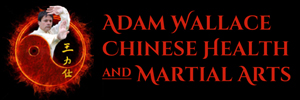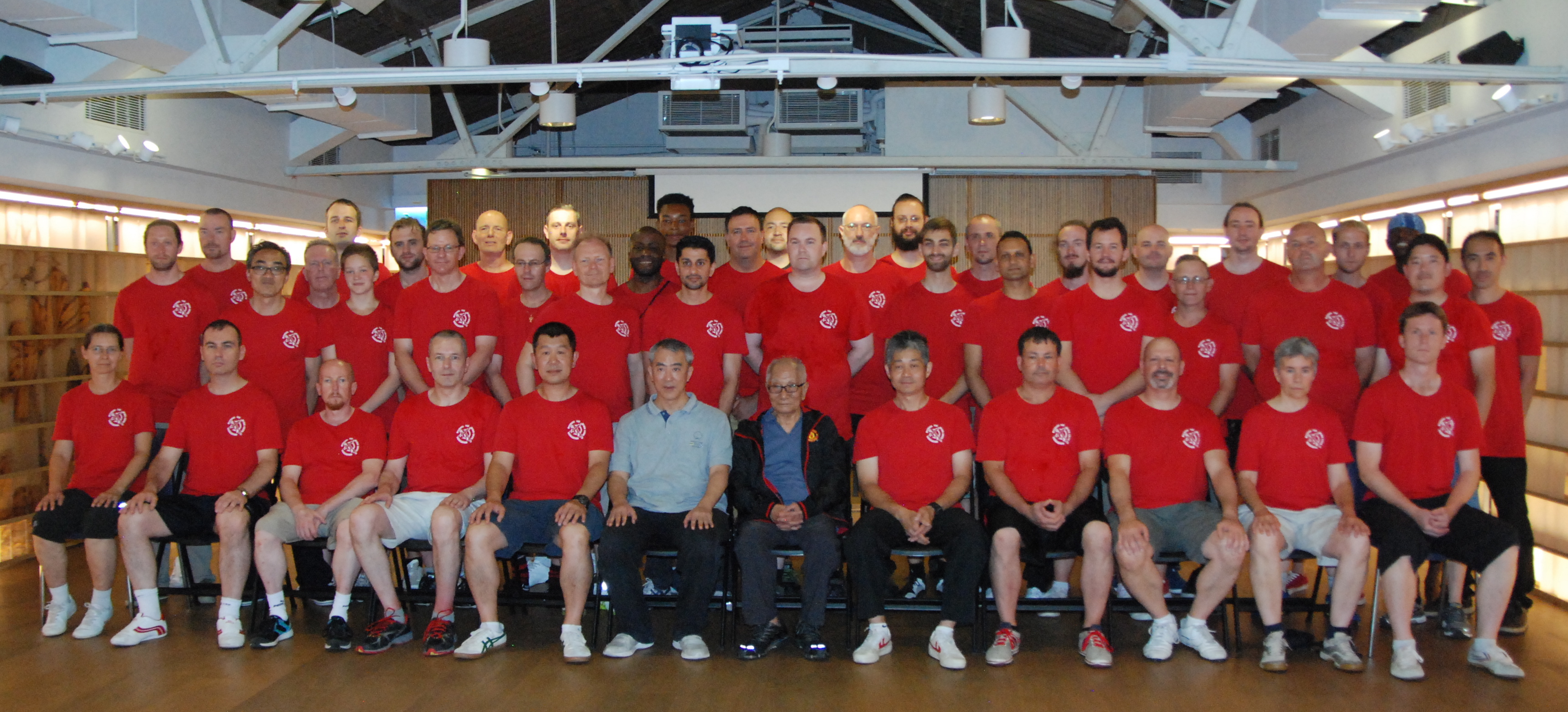Chinese martial art and Qigong skills are all products of traditional Chinese culture, which, in turn, is heavily influenced by the three philosophies of Daoism, Buddhism, and Rujia. Of the three, Rujia (better known in the West as Confucianism from Kong Fu Zi) emphasizes more the importance of family and social harmony, as well as virtue. It teaches us about human relationships (between ruler and subject, employer and employee, husband and wife, and parents and children etc.) Those above us that help and educate, like parents and teachers, or within the skill family the Sifu, elder brothers and sisters (Sihing and Sijie), are to be treated with respect, dutifulness, and gratitude. In fact, a common Chinese maxim states, “Teacher for a day, Father for a lifetime”. And, those that are junior, or younger brothers and sisters (Sidai and Simiu), are to be nurtured and helped along the way. These relationships work based on genuine care and loving energy.
Within the traditional skill family there exists a hierarchy. If we want to learn a genuine traditional skill, in all its glory, then this is something we must embrace, or at least, accept with good grace, as this is the way things are. Those stuck rigidly in the Western mindset (everyone being ‘equal’) that cannot be respectful and humble have no business learning traditional skill, as the ‘heart’ is not right. They are better suited to learning the more modern, diluted skills found within health clubs and community centers that come with none of these ‘restrictions’, demands and expectations.
Elders, in China, generally, are respected for their life experience and wisdom, more so than in the West. Within existing traditional Chinese schools with lineage, even ancestors many generations back are revered and remembered for their contributions to the skill’s development and refinement. Current generation descendants still visit the burial sites and shrines built to honor their ancestors, especially during official ceremonies, and for the benefit of foreign visiting students. They make offerings, burn incense, give blessings, and ‘kowtow’ (kneeling and “knocking head” to the floor). Without these noted individuals, and the sacrifices they made, none of us would have these amazing gifts today, that offer so much to improve physical health, vital energy, Mind and Spirit, and ‘human potential’. So, remembrance and gratitude is owed to them. With a strong bond to a teacher that is connected to a lineage, we become connected to his teacher (our Sigong) and to ancestors all the way back to the very creator and founder (Sijo)! We are now part of this extended family, and become part of an unbroken chain, connected to ancient history, wherein the skill itself becomes richer and imbued with more meaning for the student. Those connected to the past (with tradition and culture) can expect to have a real future, full of potential. Those without a teacher, without a skill family, and without lineage may still enjoy the practice of their forms and gain some benefit, but with no past there is no future. They cannot expect to attain the really high levels, without the help of family, and they are missing out on so much more.
Some students may eventually become closer to their teacher and some of their second family brothers and sisters than their own blood family. Historically, some even took on the teacher’s family name, in order to carry his name forward if he had no blood family descendants. This level of loyalty and love is very rarely found today. But, students that show sincere care may become closer to the teacher, like family. Whether blood family or second family, I truly believe it was because strong bonds like these existed between teacher, student and family, all being of ‘One Heart (and Mind) Together’ (‘Yi Ge Xin’) that rare and special traditional skills have managed to survive to this day. Beyond the teacher’s corrections, with family support there is encouragement, a helping hand, friendly competition, stimulation and inspiration, which raises everyone in the group’s level. This leads to standards being reached far beyond those commonly attained by the average individual, practicing all alone, in isolation. Family supports and nourishes the individual, and it is caring, like-minded, loyal individuals that create a strong family unit.
Supporting evidence of the power of family over the individual is found within “Lessons from the Geese”, written by Dr. Robert McNeish of Baltimore, in 1972. (For those studying Wild Goose Qigong, this carries even greater significance.) “As each goose flaps its wings it creates an “uplift” for the birds that follow, and by flying in a V formation, the whole flock adds 71% greater flying range than if each bird flew alone. When a goose falls out of formation, it suddenly feels the drag and resistance of flying alone. It quickly moves back into formation to take advantage of the lifting power of the bird in front of it. When the lead goose tires, it rotates back into the formation and another goose flies to the point position. The geese honk to recognize each other and encourage those up front to keep up their speed. When a goose gets sick or wounded, two geese drop out of formation and follow it down to help and protect it. They stay with it until it dies or is able to fly again. Then, they launch out with another formation or catch up with the flock.”
It takes time to develop a good relationship with a teacher, and for that teacher to come to know the student’s heart, give his full trust, and genuinely want to share the deeper aspects of the skill. After family skills spread out from their point of origin and were taught to ‘outsiders’, many teachers would initially hold back some skill, teach only superficially, or slightly differently, and in some cases even slightly wrong, so that the impatient, disloyal, undeserving that tended to leave in a great hurry thinking they could ‘steal’ the art, would not be able to take the real skill with them. Only those that remained, and met the teacher’s approval, would finally acquire the correct skill and complete studies. Still today, it really all comes back to family. Human nature dictates that the teacher naturally gives more care and attention to the good student that understands the concept of family, and sets a good example in this regard, over the selfishly motivated egotistical student that cares not about teacher and family, and only covets the skill itself. So, in reality, the good student (close as family) is the one who tends to acquire the true skill, in completion, which means, in a sense, nothing has really changed since ancient times.
When I consider the most accomplished masters I have encountered, or even just know of by reputation, it is no co-incidence that they always happen to be the ones closest with their teacher, and firmly ensconced within their family unit. They are recognized within the lineage and their background is verifiable. They progressed through the levels, from beginner to advanced, completing studies and gaining mastery, all the while following the traditional way. The teacher will allow them to teach outside when they are ready. There are, on the other hand, maverick teachers, that gain fame with published books and instructional videos, never having belonged to any lineage or having developed relationships and connections. Because of ego, they cannot endure being junior in a group, having to respect those senior, following rules, and above all, accepting criticism and being tested, necessary to improving and becoming any good at all. They pick up a little skill here and a little there, from different teachers, with no concept of loyalty, and lack the perseverance to actually complete a syllabus. So, they create their own brand new style, a fusion of everything they learned, and give it catchy name or buzzword, and become the leader. In most cases, they never gained permission to teach, because they were not ready, or good enough, yet consider themselves worthy, and have the gall to title themselves ‘Master’. Their fame is not due to reputation and skill, but a well-oiled promotional and public relations machine. Their theoretical and academic knowledge, as well as lecturing skill, far surpasses their actual gongfu (training and experience). They are recognized by their devotees and followers, but not by other masters. They possess charisma, but none of the character and heart of a master.
We cannot all be physically with our teacher and family forever. Life can take us away, and sometimes, once a good standard has been acquired, it may be the teacher himself that encourages the student to travel far and wide to spread the skill in places where it is not found. However, physical distance is no reason for this connection to be broken or lost, especially with the communication tools available to us today. Some of us are bound together on a deeper energetic level. We may think about teacher and certain friends often, and we can phone, send emails or texts from time to time. My Sifu continues to visit his teachers in China, especially on their birthdays and remain in contact. I frequently travel to visit my Sifu in UK. I call him regularly and send him gifts on birthdays and Christmas. I am eternally grateful to my brothers (Darryl, Mike, and Peter) that take time out, individually, during intervals and recreation time on study courses, to share with me the knowledge and insights they gained from Sifu, that I would have missed, during my time living away. Over twenty years these bonds have become very strong. I treasure the time meeting up with brothers and sisters, sharing meals, and staying at their homes when visiting, always receiving the warmest of welcomes, and hospitality. I have many offers to stay with others on continents I have never visited. This is what family is all about! These skills we learn are ‘human skills’, for centuries passed down from person to person, and are all based essentially on solid relationships.
If you have the good fortune to find a quality teacher you respect and like, and a group that makes you feel welcome and comfortable, invest some time and energy into developing connections. The years pass too quickly, so don’t squander the opportunities to spend time together socially, practice together, and get to know one another. It is easy to become too wrapped up in our own lives and isolate ourselves from the group. Bear in mind that if you don’t care about others, why should they care about you? Ultimately, the sense of family, good relations and strong connections brings more meaning and depth to learning a skill than solitary practice can by itself. Solo practice, though most important, without family support and inspiration becomes a limited and limiting experience. Growing old together as the skill develops is the best experience and ideal situation. This is the way it is meant to be, just as it always was, since the origin of these skills.
– Adam Wallace

